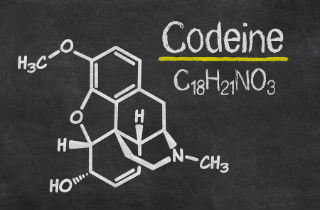Yes.
Codeine is classified both as a medical and legal narcotic. On its own, Codeine is a Schedule II drug, but in certain formulations it’s less strictly-controlled. Although this narcotic medication is very widely-used, codeine can be highly addictive. However, codeine addiction is a treatable condition if you are willing to accept help. Learn more about Codeine Addiction Treatment Programs and Help to be better prepared for what you can expect during the recovery process. All your questions about taking codeine are welcomed at the end section.
What is a medical narcotic?
Codeine meets the medical definition of a narcotic. Narcotics are a certain family of medications that slow brain activity. These are usually used to treat pain or as anesthetics. Narcotics can also be used to treat diarrhea or coughing. Narcotics can be fatal or have severe adverse effects in large doses.
Narcotic medical uses for codeine
Codeine can be used to treat mild to moderate pain. It’s also used to treat coughing. Codeine is often combined with other non-narcotic painkillers, or cough medications and works by affecting the parts of the brain which control coughing and pain.
What is a legal narcotic?
Sometimes a “narcotic” is used to refer to all illicit substances, but this is not the legal definition of the term. Legally, a narcotic is a substance that binds to the opiate receptors of the brain and is regulated by the Controlled Substances Act. In addition to opium, opium derivatives, and synthetic opioid substances, the term can also refer to a few unrelated substances, like cocaine.
Why is Codeine a Schedule II drug?
Pure codeine has a high potential for abuse and addiction. It can lead to severe psychological or physical dependence. However, it’s important to note that not every drug containing codeine is a Schedule II drug. Codeine cough syrups, for example, are only Schedule V, meaning they pose a limited abuse risk because of the very small amounts of the drug actually contained in the medication. Codeine vs hydrocodone differ both in DEA scheduling classification and in withdrawal effects; codeine is more difficult to withdraw from than other equally effective opiate or opioid alternatives.
Is Codeine addictive?
Yes, codeine is addictive. In fact, codeine is the most widely-used, naturally-occurring narcotic in the world, making it easier to access and become addicted to than other, more tightly-controlled narcotics. However, codeine is more likely to be addictive to people who have a history of drug or alcohol abuse.
Codeine narcotic abuse
Codeine is a narcotic and can be abused for its euphoric effects. Since it’s usually available only in combination with other medications, this can be dangerous. Why? These other medications may have a lower threshold for overdose, and can have their own negative side effects. Codeine overdose is also possible as a result of codeine abuse.
Should codeine classification change?
No. It seems that the classification of codeine is appropriately strict for the dangers and addictive potential of the drug. The only higher rating for narcotic drugs is Schedule I, which is reserved for substances which are highly addictive and harmful, but which have no recognized medical use. As a Schedule II drug, codeine remains available for those who really need it.
PROs of codeine as a Schedule II narcotic
Codeine is an effective drug for treating a variety of aliments. Furthermore, codeine is a good short-term solution for managing pain, and can help those suffering from cold symptoms which just aren’t eased by over the counter medications.
CONs of codeine as a Schedule II narcotic
If taken in large enough quantities, codeine can result in overdose, causing coma or death. Additionally, codeine can have a variety of adverse effects, including:
- constipation
- dizziness
- drowsiness
- headache
- mood changes
- nausea
- vomiting
Codeine narcotics questions
Do you still have questions about the legal or medical definition of codeine? Please leave your questions about taking codeine here. We will do our best to answer your questions with a personal and prompt response.









Related Posts